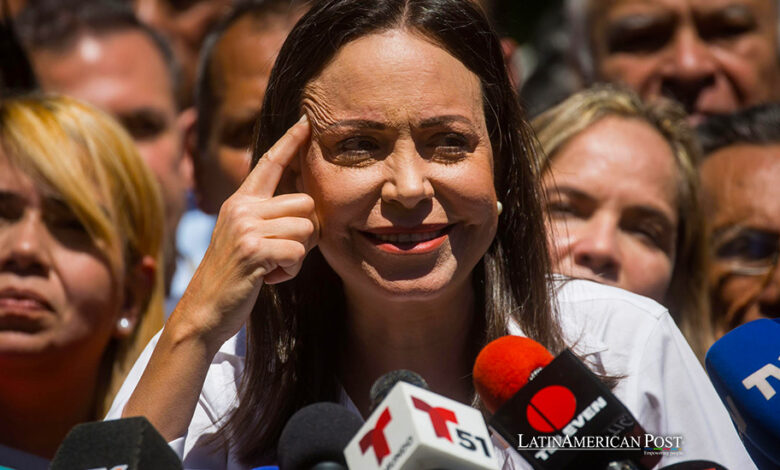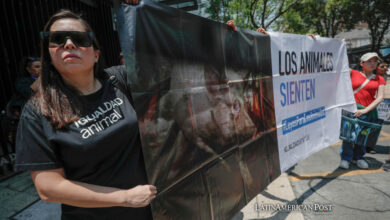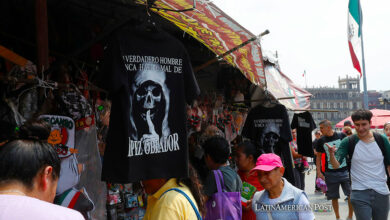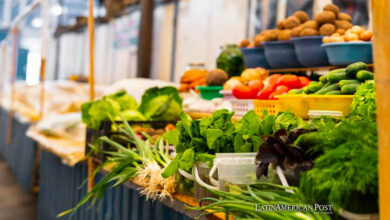Venezuelan Opposition’s Machado Defiant Against Election Ban

Despite a Supreme Court ruling barring her from office, Venezuelan opposition candidate Maria Corina Machado vows to stay in the presidential race, challenging the decision and asserting her commitment to change.
Defiance in the Face of Adversity
Maria Corina Machado, a prominent figure in Venezuelan politics and a vocal critic of the current regime, stands firm in her resolve to participate in the upcoming presidential elections despite a recent Supreme Court ruling barring her from holding office. The 56-year-old industrial engineer and opposition candidate faces a crucial battle for her political career and the future of Venezuela’s democracy.
The ruling, issued last Friday, prevents Machado from registering for the presidential elections scheduled for later this year. The court cited her support of U.S. sanctions against Venezuela, involvement in corruption, and alleged mismanagement of Venezuela’s foreign assets as reasons for the ban. However, Machado remains undeterred, declaring at a press conference in Caracas, “There is no retreat. We have a mandate, and we will complete it.”
Machado’s steadfastness comes at a critical time in Venezuelan politics. She won an October primary by a landslide, demonstrating her popularity and the trust placed in her by a significant portion of the electorate. Her refusal to step aside in favor of a substitute candidate underscores her commitment to leading the opposition and her conviction in the need for change in Venezuela. “A substitute candidate is the plan by those who don’t want change, and our plan is change, period,” she stated emphatically.
Judicial Crime and Hopeful Vision
Labeling the court’s decision as a “judicial crime,” Machado acknowledges the road ahead is fraught with obstacles but remains confident that elections will occur this year. Her stance is a beacon of hope for many Venezuelans who yearn for a transition to a more democratic and transparent government.
The political landscape in Venezuela is further complicated by international dynamics, particularly the relationship with the United States. On several factors, the U.S. had conditioned the continuation of sanctions relief, granted in October as part of an electoral deal signed in Barbados. These included the release of “wrongfully detained” Americans and progress towards lifting bans on various opposition figures, including Machado.
In a significant development in December, Venezuela released 24 of its citizens and 10 Americans in a prisoner exchange that also secured the release of a Maduro official and the extradition of a Malaysian businessman wanted by the U.S. This event highlights the intricate interplay between domestic politics and international relations in Venezuela’s current political climate.
Sanctions Policy Reassessment
The U.S. State Department, reassessing its sanctions policy, acknowledges the situation’s complexity. Sanctions have been a vital tool in the U.S. strategy to pressure the Maduro government for democratic reforms but have also had significant humanitarian implications for the Venezuelan people.
Machado’s position in Venezuelan politics is unique. Her refusal to consider a substitute or successor reflects her belief in her role as a leader in the opposition movement. Moreover, she has requested representation at talks between the opposition and the Caracas government, signaling her intent to remain a key player in any negotiations that could shape the country’s future.
As Venezuela approaches a pivotal moment in its history, Machado’s defiance against the court ruling is not just about her candidacy. It represents a larger struggle for democratic principles and the rule of law in a country mired in political and economic turmoil for years.
Her leadership and unwavering commitment to change have galvanized a segment of the Venezuelan population eager for an alternative to the current administration. Machado’s journey is emblematic of the broader struggle for democracy in Venezuela, a battle closely watched by the international community and carries significant implications for the region.
A Pivotal Moment in History
In the face of legal and political challenges, Machado’s determination to continue her campaign underscores the critical role of opposition in a functioning democracy. Her story is one of resilience and perseverance in pursuing political reform and governance that genuinely represents the people’s will.
Also read: Venezuela’s Political Turmoil: OAS Condemns Blocking of Opposition Leader
Maria Corina Machado’s role remains pivotal as the Venezuelan political saga unfolds. Her refusal to succumb to judicial and political pressures shapes her political destiny. It sets a precedent for the future of democratic processes in Venezuela. Her stance is a testament to the enduring spirit of those who fight for democratic values and the rule of law, making her a symbol of resistance and hope for many Venezuelans.
The upcoming elections, thus, are more than just a political event; they are a litmus test for Venezuela’s democratic institutions and the resilience of its civil society. The outcome will have far-reaching implications for the nation and the entire region as it grapples with governance, human rights, and international diplomacy challenges in a rapidly changing world.





